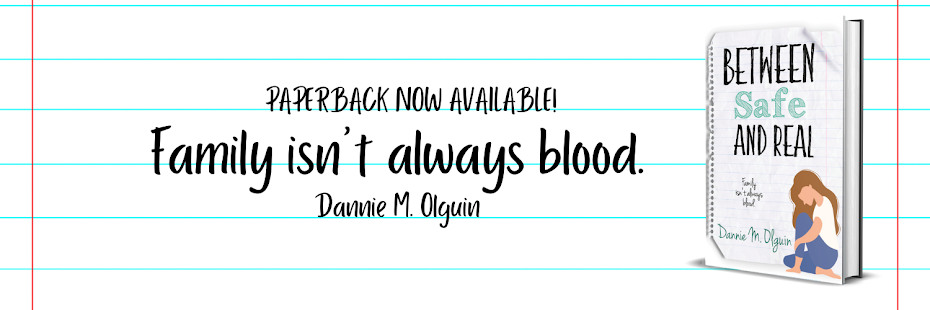This is one of my favorite writing quotes. I love it so much, it's on my business cards. It comes to me when my inner gremlin tells me I suck, or that I'm a huge fake. It comforts me when I feel like my fingers can't type the words my brain needs to say. That quote reminds me that as long as I'm willing to tell the stories I need to tell, I have power. It runs through my mind when I press my right hand into my only tattoo for strength and comfort. What you fear, if you turn toward it, will give your writing teeth. It's become my mantra and it pulls me through the scary times.
I'm writing something that scares the hell out of me right now. Okay, I'm actually writing two things that scare the hell out of me right now, but this one thing--it's really scary, yet I'm completely in love with it. There are times I want to stop working on it because I'm not exactly convinced I'm the right person to tell this story. Who am I to be able to do it justice? Hell, since I'm a pantser, I don't even know what's going to happen one page to the next. Surely, this story is meant for another storyteller, not me.
About a year ago, my family and I took a trip to Universal Studios Orlando. At the time, this story hadn't revealed itself to me. It wasn't even a blip on my story radar. The Wizarding World of Harry Potter knocked our socks off, but the highlight of the trip was Ollivander's. For those who may not know, Ollivander's is the wand shop in Harry Potter. It's not just an ordinary wand shop. No, in this wand shop, the wand chooses the wizard. Well, that's not just book magic, my friends. Against the odds, the wand actually chose my son! We knew someone would get chosen, but since my kid was thirteen, and there were younger kids there, we thought for sure one of the littles would get lucky. When Ollivander looked right at my kid and called him up to the counter, he looked at me and his dad, shocked that he'd been picked. He pointed to his chest and whispered "Me?" Ollivander assured him he was the chosen one and it was time for him to come up and fulfill his destiny by opening himself up to just the right wand.
I feel like my son did that day: Shocked. Surprised. Incredulous. Flattered. Nervous. Excited. But add scared shitless to my list. I didn't pick this story any more than my son picked that wand. The story picked me. Me, with all my baggage. Me with my worries and fears. Out of everyone in the entire world, this story picked me. I'm the only one who can write this one, so I have no right to turn away from it, even though it scares me.
What you fear, if you turn toward it, will give your writing teeth.
I sure as hell hope so. I hope I have the strength and the courage to tell this story without flinching, dumbing it down, or turning away. I hope I have the strength to tell this story with the grace and tenderness it deserves. Above all, I hope that because I refuse to turn from it, it will sink its sharp teeth into your soul.
How do you handle writing the things that scare you?
About a year ago, my family and I took a trip to Universal Studios Orlando. At the time, this story hadn't revealed itself to me. It wasn't even a blip on my story radar. The Wizarding World of Harry Potter knocked our socks off, but the highlight of the trip was Ollivander's. For those who may not know, Ollivander's is the wand shop in Harry Potter. It's not just an ordinary wand shop. No, in this wand shop, the wand chooses the wizard. Well, that's not just book magic, my friends. Against the odds, the wand actually chose my son! We knew someone would get chosen, but since my kid was thirteen, and there were younger kids there, we thought for sure one of the littles would get lucky. When Ollivander looked right at my kid and called him up to the counter, he looked at me and his dad, shocked that he'd been picked. He pointed to his chest and whispered "Me?" Ollivander assured him he was the chosen one and it was time for him to come up and fulfill his destiny by opening himself up to just the right wand.
I feel like my son did that day: Shocked. Surprised. Incredulous. Flattered. Nervous. Excited. But add scared shitless to my list. I didn't pick this story any more than my son picked that wand. The story picked me. Me, with all my baggage. Me with my worries and fears. Out of everyone in the entire world, this story picked me. I'm the only one who can write this one, so I have no right to turn away from it, even though it scares me.
What you fear, if you turn toward it, will give your writing teeth.
I sure as hell hope so. I hope I have the strength and the courage to tell this story without flinching, dumbing it down, or turning away. I hope I have the strength to tell this story with the grace and tenderness it deserves. Above all, I hope that because I refuse to turn from it, it will sink its sharp teeth into your soul.
How do you handle writing the things that scare you?

















